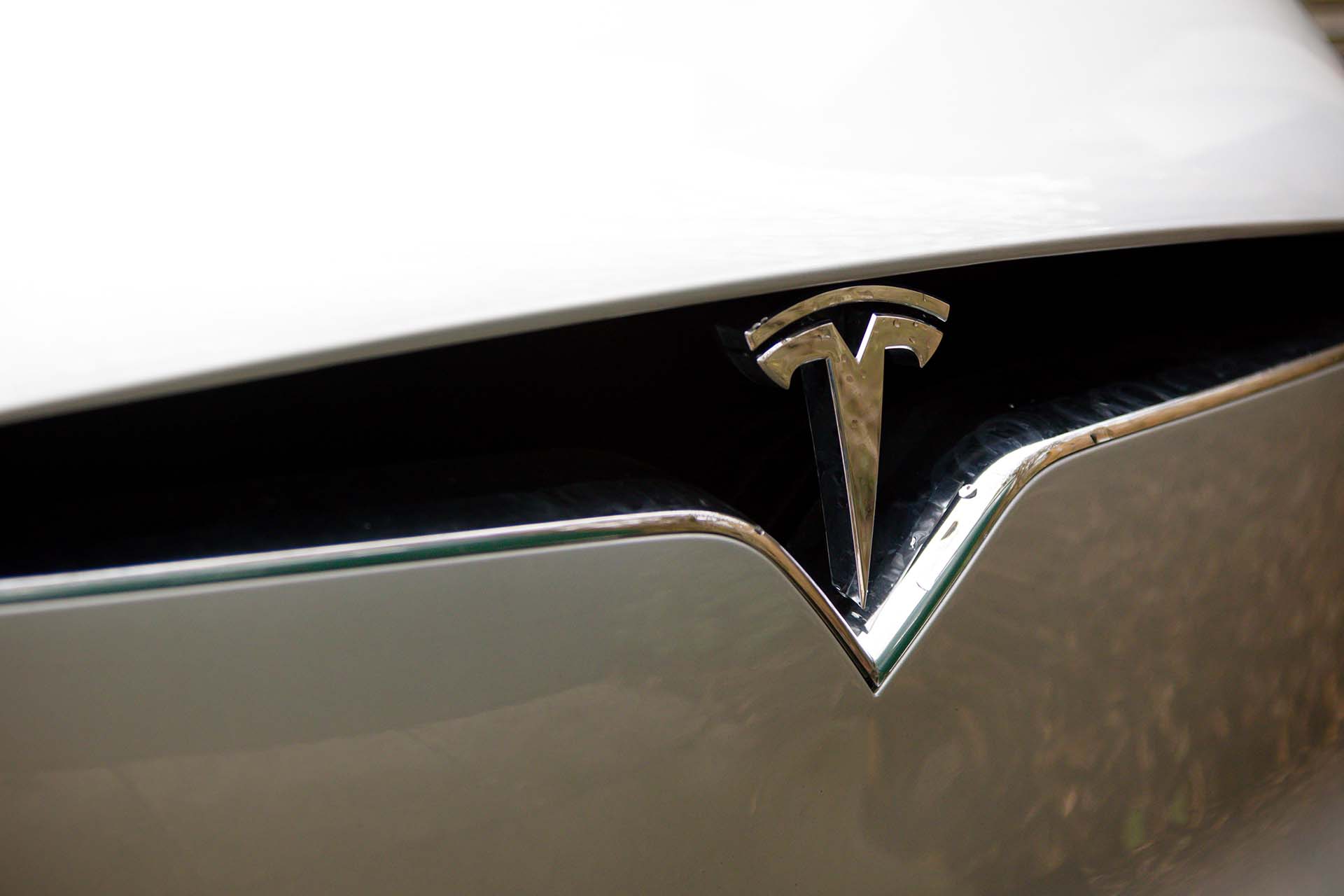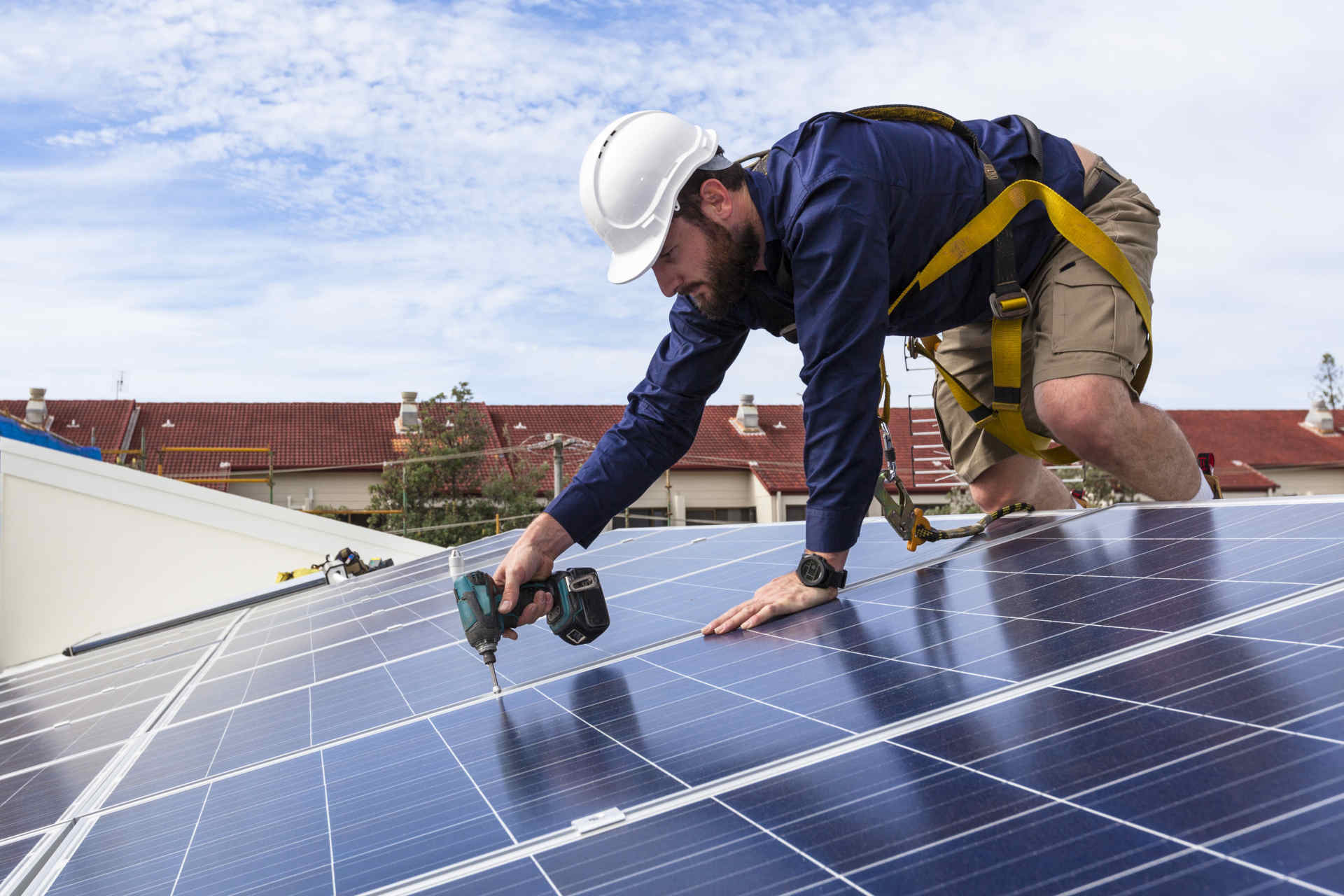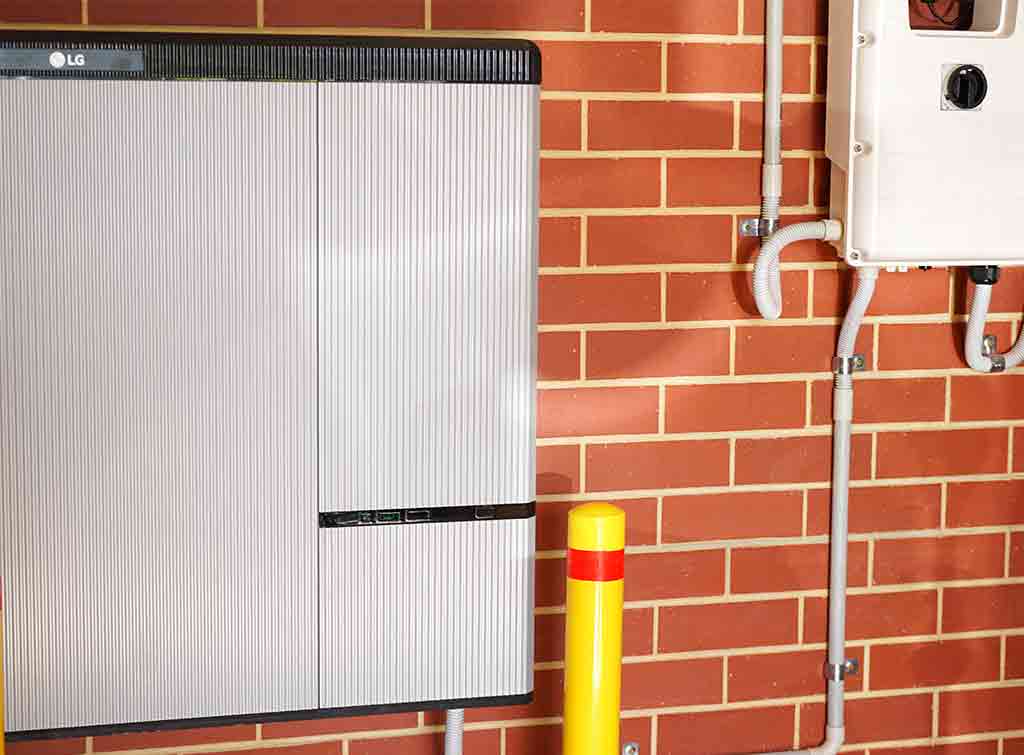Blog>Cost Guides>How much does electric car charger installation cost?
Last updated: 10 February 2025
How much does electric car charger installation cost?
Electric cars were once something to expect in the future, now they're everywhere. Wondering how much it costs to install an electric car charger at home? Let's dig into the costs you can expect to pay for your own electric car charger.
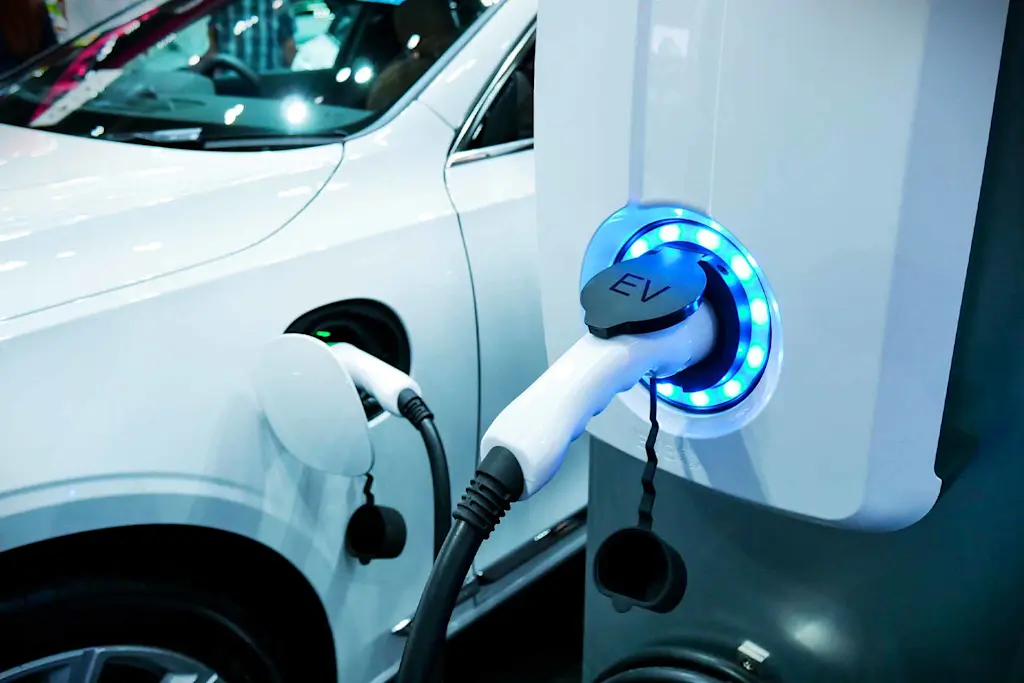
Tired of searching online for "electric charging points near me"? Then a home electric car charger could be the answer.
We've put together this guide to help you understand the average electric car charger installation cost in the UK, and what's involved with the installation.
Keep reading to find out what the cost of fitting an electric car charger might be.
Fast Facts
The average electric car charger installation cost in the UK is around £1,000 (or £650 if eligible for a government grant)
If you're a landlord or you live in a flat you can get a government grant of up to £350 towards that cost
You may incur additional costs to upgrade your home's electrics to support an electric vehicle charger
Electric car charger installation costs
To help you budget, below are the average electric car charging point installation costs in the UK:
| Product | Unit | Cost + VAT (Range low - high) | Average cost |
|---|---|---|---|
| Electric car charger - supply only | 3kW | £250 - £500 | £375 |
| Electric car charger - supply only | 7kW | £450 - £800 | £625 |
| Electric car charger with installation | £1,000 (or £650 if eligible for a government grant) | ||
| Trench and backfill (soft ground only) | £30 per metre | ||
| Trench and backfill minimum charge for digger hire | £300 | ||
| Installing an electric car charger at a workplace | £1,000 to £1,500 | ||
| Last updated: May 2024 Our costs are ballpark averages - get a local tradesperson to quote now | |||
The average cost of installing an electric car charger is around £1,000 (or £650 if eligible for a government grant). That includes the cost of labour and the EV charger itself.
If the charging cable needs to be run underground then you'll need to include the cost of trenching. This is usually around £30 per metre.
That's assuming it's soft ground (soil) with no hard breakout (concrete) and there's access for a mini digger.
See the tradespeople we've checked and recommend for your job

On Checkatrade, you'll only find trades who meet our high standards and pass up to 12 checks.
How much does it cost to install an EV charger at home in the UK?
The total cost to install a charger for an electric car or hybrid at home will vary. One of the biggest factors affecting cost is the power of the charger you install.
On average, here's how much it costs to buy an EV charging point (supply only):
3kW electric car charger –£250 - £500
7kW electric car charger – £450 - £800
Do you own a Tesla? Check out our Tesla home charger cost guide.
Help to finance your EV charger installation cost in the UK
All homeowners used to be able to apply for a UK government grant of up to £350 towards their electric car charging point installation cost. That has since changed.
Good news if you're a landlord or you live in a flat, there's still help available...
As of March 2022, it's now only landlords or people who live in flats that are eligible to apply for the government grant.
The requirements to get 75% off your electric car charger home installation cost (up to a maximum of £350) are:
You either own and live in a flat or you rent out a residential property (of any kind)
You must own an eligible electric vehicle
Your property must have its own off-street parking space
If that's you then you can apply for the government grant here.
How much does an electrician cost to install EV chargers?
When hiring an electrician, the average electric car charger home installation cost in the UK is around £45 - £60 per hour.
As a day rate, the electrician cost to install EV chargers works out to be about £400 per day.
Find out more in our guide to electrician costs.
Alternatively, you can speak to local electric car charger specialists. They'll be able to tell you exactly how much EV charging station contractors cost in your area.
How much does Pod Point installation cost?
Pod Point has become a popular brand of electric car charger. Their Solo 3 charger comes in at £798 for supply and installation.
The Solo 3 is a fast EV charger that comes available in three power ratings: 3.6kW, 7kW or 22kW. Installation of the Pod Point charger can take as little as 2 hours.
How much to install an EV charging point at work?
The average cost for installing a commercial electric car charger at a workplace is around £1,000 to £1,500.
The cost of the electric car charger installation at your workplace will depend on various factors.
Key factors include:
Make and model of car charger
Number of chargers installed
Specification of cables and fixtures needed
It’s also worth checking out the UK government’s Workplace Charging Scheme for Electric Vehicles scheme. It offers eligible businesses up to £350 per charger (for up to 40 chargers).
Additional electric car charging point installation costs
If you're trying to calculate your electric car charger installation costs, there are several potential extras you might need to pay for.
In addition to the equipment and labour costs, you may need to budget for the following:
Replace or upgrade your fuse box to take into account the additional electricity usage – £350+
A new isolator switch, which is often required –£100 - £200
Rapid charging cables, such as a CHAdeMO or a European CSS cable – £150 - £500 (depending on the type and length of cable)
Build a new driveway if you don't have off-road parking (so you can park your car near the charging point) – £30 - £30per m2
Security lighting so that you're electric charger is well-lit for extra security – £150 - £200
If relevant to your electric car charger installation properly, remember to include these potential costs in your calculations.
See the tradespeople we've checked and recommend for your job

We check the reviews on Checkatrade are from real people, and that trades meet our high standards.
Factors affecting the cost of fitting electric car chargers
Your electric vehicle will have a Type 1 or a Type 2 connector, so make sure you pick the right home charger for your car.
Once you know that, you’ll need to decide between slow and fast chargers:
Slow chargers are rated at 3kW to 6kW and can take up to 12 hours to charge a long-range vehicle (6 to 8 hours for a smaller one)
Fast chargers have 7kW to 22kW of power and can charge an electric vehicle in anything from 2 to 4 hours
Note: The figures in our table reflect the cost of high-specification chargers, i.e. full SMART options, controlled via an app.
Let’s take the Nissan Leaf, as an example...
If you have a 3kW slow charger you can expect a full charge in around 6 to 8 hours. On the other hand, a 7kW fast charger will only take 3 to 4 hours.
The 3kW option is ideal if you’re planning on doing all of your charging overnight. Or you drive a hybrid with lower power demands. But, if you need faster charging then 7kW is the way to go.
Brand of EV charger
Not all electric car charging stations cost the same. And there are a lot of options available.
Some of the most popular EV charger brands include some well-known names, like Siemens and Bosch. As well as lesser-known brands, such as Juicebox and ClipperCreek.
Each brand has its own specialities and charging capabilities. It’s recommended you contact a specialist, who can advise the right one for your needs.
Smart home chargers
We also recommend choosing a smart charger, which is connected to the internet and gives you much more control over the charging process.
They’re eligible for grants so will save you money too.
Green energy
If you already have solar panels or access to wind power you can make use of this green energy to power your car.
To do so you’ll need battery storage, as well as an inverter between your panels and charging point, or you can purchase a specialist car charger for this purpose.
That way you’ll save even more money and ensure you have a 100% green supply.
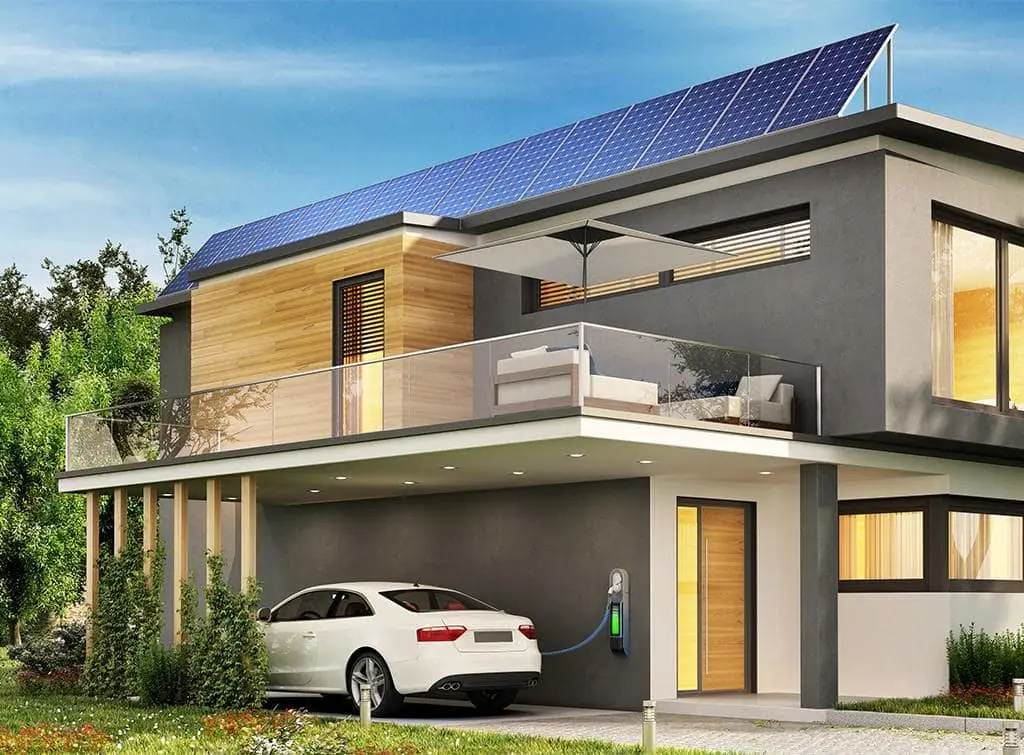
Cost of charging an electric car
Once you've installed your electric car charger, you just need to plan for the cost of charging your car.
Here are some of the average costs for electric vehicle charging in the UK:
| Location | Amount of charge | Cost |
|---|---|---|
| Charging at home | Full charge | £17 |
| Charging in public | 30 minutes/90 mile | £22 |
| Last updated: May 2024 Our costs are ballpark averages - get a local tradesperson to quote now | ||
Running costs for electric vehicle charging
Once you’ve had the charger installed then you’ll only need to pay for the electricity that’s used. There’s no additional monthly cost for access to the grid.
As such, charging an electric vehicle at home is the cheapest option for the vast majority of owners.
If you’re wondering how often to charge your electric vehicle, well the best analogy is to think of how you charge your mobile phone.
Ideally, you want to charge regularly on a set schedule (usually overnight). Then you can always top up with ad hoc charging after any long drives or heavy use.
Depending on your energy tariff, you could pay around £17 to fully charge your car at home. Even better, if you're using solar panels you won’t pay anything for the energy.
Charging your EV outside the home
Although you could charge your electric vehicle outside the home, you will have to sign up with a public charging company, many of which have tariffs.
You can expect to pay £22 to charge your car up to 80% and over £39 for a full charge outside the home.
In fact, a What Car? study found some charging stations cost more per mile than petrol or diesel!
You also run the risk of not finding a charger when you need it or finding a charger that isn’t compatible with your car.
A few things to bear in mind:
Rapid chargers outside the home can charge the car to 80% in 45 minutes, considerably quicker than the 4-8 hours for home chargers
Rapid chargers are above 22kW, whilst Tesla’s superchargers are 145kW, so your mileage may vary
Costs vary based on location
Top tip... The last 20% of a charge takes longer than the initial 80% so if you’re cost-conscious you should set your car or the charger to stop recharging at 80%.
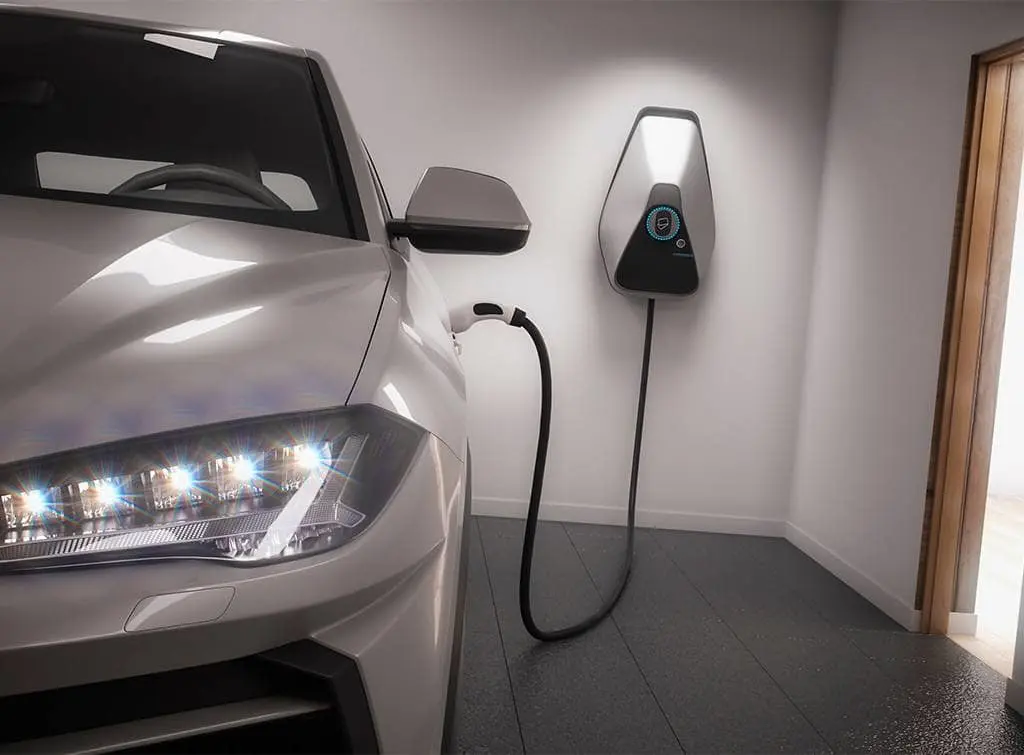
Benefits of installing an electric car charger at home
If you own an electric vehicle, installing an electric car charger at home is a smart move.
Here are some of the reasons why having your own electric vehicle charging point at home might be a good idea...
Enjoy the convenience of being able to charge your PHEV or full-electric vehicle whenever you want
Charging at home costs less than using public electric car chargers near you
An electric car charger offers much faster charging than using a standard 3-pin plug
See the tradespeople we've checked and recommend for your job
How is an electric car charger installed?
The process of installing an electric car charger is pretty straightforward and should take roughly 2-4 hours.
Here’s a quick summary of the electric car charger installation process:
A qualified electric car charger engineer or qualified electrician will install the charger – ideally as close as possible to where you usually park your car
The car charger will be connected to the main power supply of the property
The charger is then tested to ensure that it’s working correctly
Once your electric car charger has been fitted, the installer should show you how to use it and give you a chance to ask any questions.
Choosing where to install your electric vehicle charger
It’s important to choose the right location for your electric car charger. Here are some of the things you should consider:
The charger needs to be accessible so that you can easily plug in your electric vehicle
You might want to locate your electric car charger out of sight so that it’s not visible from the street
It’s sensible to position your charger where you can avoid having the charging cable laid across your whole driveway (which can be a major trip hazard)
Your charger should have good access to your home’s wifi signal so that you can take advantage of smart tools, such as remote charging
Requirements for EV charger installation
Before you crack on with installing an electric car charger at home, you’ll need to make sure that:
You have access to your own private off-street parking
The electric car charger can be installed at least 0.9 metres above floor level
You can install the charger in a sheltered position
The charging cable should be able to safely reach your electric vehicle without being pulled taut
A reliable wifi connection reaches the electric car charger (for smart wall box chargers)
Can I install an electric car charger myself?
We would always recommend hiring a certified and OZEV-approved charging provider to install your electric car charger. Find out more here.
We spoke to a Checkatrade member, who said:
"You need to inform the DNO (electricity grid operator in the region) to ensure the main fuse and supply are adequate. If you get it wrong, it will blow the fuse or cause a fire.
You also need to notify building control under Part P as it is a new circuit, if you don't, you may run into problems with insurance, remortgaging or selling.
There are a lot of safety considerations such as earthing and RCD selection, again if you get it wrong and there is a fault, it could prove fatal or damage a very expensive new electric car."
That's why we strongly recommend hiring a professional for this job.
To find an experienced local electric car charger installer in your area use our free search feature. Search your postcode below to find professionals on your doorstep.
See the tradespeople we've checked and recommend for your job
How to get EV charger installation quotes
If you're ready to get quotes from reliable local electric car charger installers in your area, we're here to help.
Use our handy request a quote feature and let us do the legwork for you.
We'll reach out to the best local tradespeople near you and we’ll get them to contact you directly.
With multiple quotes, you can compare to make sure you're paying a fair and competitive price.
Top tip: To get an accurate quote make sure you include all relevant details, such as the type of charger you want and any electrical adjustments you might need in your house.
Find an expert to install an electric charger near me
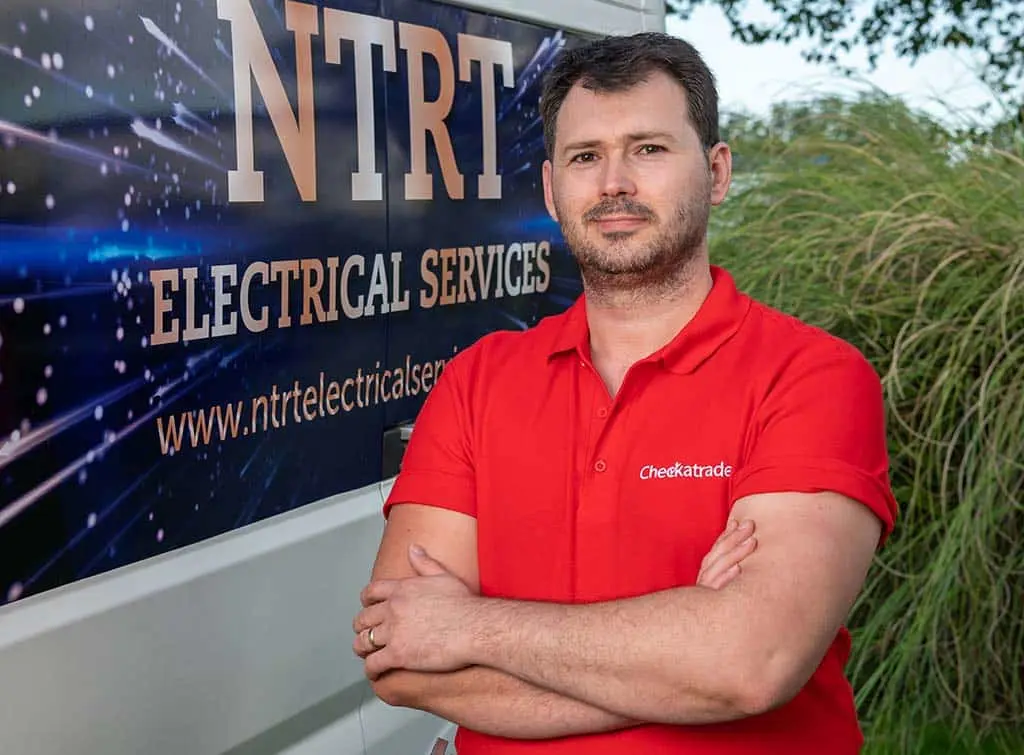
Thankfully, you're in the best place to find the best electric vehicle charging experts in your area.
All of our members have to pass up to 12 checks to earn the Checkatrade tick.
That way you can always be confident that you're hiring a skilled and experienced tradesperson through us.
To search our online directory of approved local electric car charger installers near you, enter your postcode in the box below:
See the tradespeople we've checked and recommend for your job
Key takeaways for electric car charger installation costs
If you don't mind slower charging times or are happy to charge overnight, you can reduce the cost of a home charger for your electric car
Take advantage of government grants to bring down the cost even more
The cost of installing a home charger for an electric car is offset by the saving in energy compared to charging outside the home
Make sure you have an energy tariff with off-peak pricing for discounted charging costs overnight
FAQs
Can I charge my car through a regular plug socket?
You may be wondering why you can’t just use a standard UK plug socket. The reason is that they're not designed for such high loads over a long duration.
Charging points are also 30-60% quicker than using a wall socket. If you charge your car through a regular home plug socket, you'd have to deal with:
Slower charging
Strain on your electrical circuitry as they aren't designed for this type of load
Possible damage to your wiring, if it's old
Higher risk of electrical fires, if your wiring and circuitry are not able to manage the load
Potentially higher electricity bills, as a dedicated smart meter will charge your car during off-peak hours (which costs less)
Are there any government grants for electric car chargers?
As we've mentioned above, there are no longer government grants available for house owners in the UK to install electric car chargers.
In England and Wales, you could still receive up to £350 towards the cost of buying and installing an electric car charger if you:
Own and live in a flat or rent a residential property in the UK
Have private off-street parking
Own an eligible electric vehicle
For electric car owners in Scotland, you could be eligible for a £300 wall box grant if meet the below requirements:
You own an electric vehicle and live in a rural or remote location in Scotland
You bought a used electric vehicle through the Scottish government’s Used Electric Vehicle Loan Scheme
If you're planning to install a car charger in a workplace then you could apply for the Workplace Charging Scheme for Electric Vehicles.
This grant will pay up to £350 per charger (maximum 40 sockets per business) to businesses, charities and local authorities in the UK that have off-street parking and install chargers to be used by their employees.
Is it worth getting an electric car charger installed?
If you have a hybrid or electric vehicle, there are several reasons why installing an electric car charger at home is a good idea:
An electric car charger is up to three times faster than charging off a standard plug (and safer over time)
It’s cheaper to charge your electric vehicle using a home charger compared to public charging stations
You don’t have to wait for a public charger to be free
You’re in control of choosing your home energy supplier so you can ensure that you’re using an eco-friendly energy source
How long does an electric car charger installation take?
On average, electric car charger installations will take roughly 2-4 hours to install. The time it takes will depend on the specification of the EV charger that you have installed and the access to your property.
Professional installation of an electric car charger will include a site survey before installation and supply of the equipment and cabling.
Can any electrician install a car charger?
When choosing who to install your electric car charger, we always recommend hiring an experienced electric car charger engineer or a qualified electrician.
The majority of domestic electric car chargers will require an Electric Installation Certificate (EIC) from a competent electrician to validate their warranty.
With that in mind, you’ll want to make sure that your electric car charger installer is registered with the NICEIC and/or the Office of Zero Emission Vehicles (OZEV).
And, if you’re applying for a government grant, you'll likely need to hire an OZEV-approved tradesperson to install your electric car charger.
Does an EV charger increase home value?
By 2030, you will no longer be able to buy a car with a combustion engine, which means electric vehicles are here to stay.
And the demand for homes with an EV charger is only going to increase in the future.
An increasing number of people already having switched to hybrid and electric vehicles. That means having an EV charger is already an increasingly desirable feature of a home.
It might not directly add a huge amount of value to your property. However, having an EV charger will certainly increase its appeal to potential buyers who already have or are looking to buy an electric vehicle.
Do I need permission to install an EV charger?
Planning permission is not usually required to install an EV charger for properties with off-street parking.
That said, you do have the regular restrictions for listed buildings or properties located in a conservation area. If that applies to your home then you would need to get planning permission.
If in doubt, we always recommend checking with your local authority before going ahead with installing an EV charger at home – just to be sure.
See the tradespeople we've checked and recommend for your job
More Cost Guides
More Electric Vehicle Charger Installation Articles
See the tradespeople we've checked and recommend for your job



